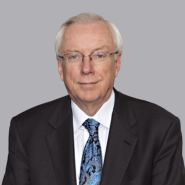Will Rite-Hite Be Next?
- October 12, 2018
- Article
Associated People
Associated Practices
Associated Technologies
In Rite-Hite v. Kelley Co., 56 F.3d 1538 (Fed. Cir. 1995) the Federal Circuit refused to award damages for the goods which were regularly sold as part of a package including patented goods. Rite-Hite sought lost profits for the damages it suffered as a result of Kelley selling dock levelers along with the the patent products. The evidence was that when one purchased the patent product, a truck restraint system, the purchaser usually purchased the other goods necessary to complete the loading dock. The evidence also showed that dock levelers were not part of the patented product or of any part which interacted with the restraint system. Despite 35 USC 284 requiring that damages be adequate to fully compensate for any damages the patentee suffered as a result of the infringement. Despite the clear statutory language requiring compensation for all of the injury suffered, the Federal Circuit decide that the since dock levelers sold by the infringer did not interact with the patented invention not damages were due even though the evidence showed the patentee would have made the sales but for the infringement.
In Western Geco LLC v. Ion Geophysical Corp., 138 S. Ct. 2129 (2018)(Western Geco) the Supreme found it proper to award damages for lost sales outside the U.S. caused by the infringer’s U.S.C. 271(f)(2). Recently Judge Stark of District of Delaware decided that the Western Geco decision applied equally to 271 (a) infringement in Civil Action 04-1371-LPS on October 4. Judge Stark considered Western Geco implicitly overruled Power Integrations, Inc. V Fairchild Semiconductor Intel., Inc. 711 F.3d 1348 (Fed. Cir. 2013 which precluded damages for worldwide sales. The court certified it’s order for interlocutors appeal.
The Supreme Court in Western Geco found that section 284 required that damages be awarded to compensate for all of the damages suffered. If section 284 reaches worldwide sales, then by its language it also includes all products sold by an infringer as a result fo the infringement whether covered by the patent or not. Rite-Hite resulted in the patentee not being compensated for sales the evidence showed it would have made but for the infringement. Thus, they constitute part of the injury flowing from the infringement.
At some point the Federal Circuit must recognize that section 284 means what it says “award the claimant damages adequate to compensate for the infringement.” Logic dictates that any sale the infringer takes away from the patentee as a result of the infringement, whether the product sold is patented or not so long as the infringement caused the sale to be lost by the patentee.
While I doubt that the Federal Circuit will take such a position, a district court might which could lead to a Supreme Court review.










 Counseling & Strategic Advice
Counseling & Strategic Advice IP Transactions
IP Transactions Litigation
Litigation PTAB Proceedings
PTAB Proceedings Start-Up
Start-Up Technology Transfer
Technology Transfer Trademark & Designs
Trademark & Designs U.S. Patent Procurement (Application Drafting & Prosecution)
U.S. Patent Procurement (Application Drafting & Prosecution)








